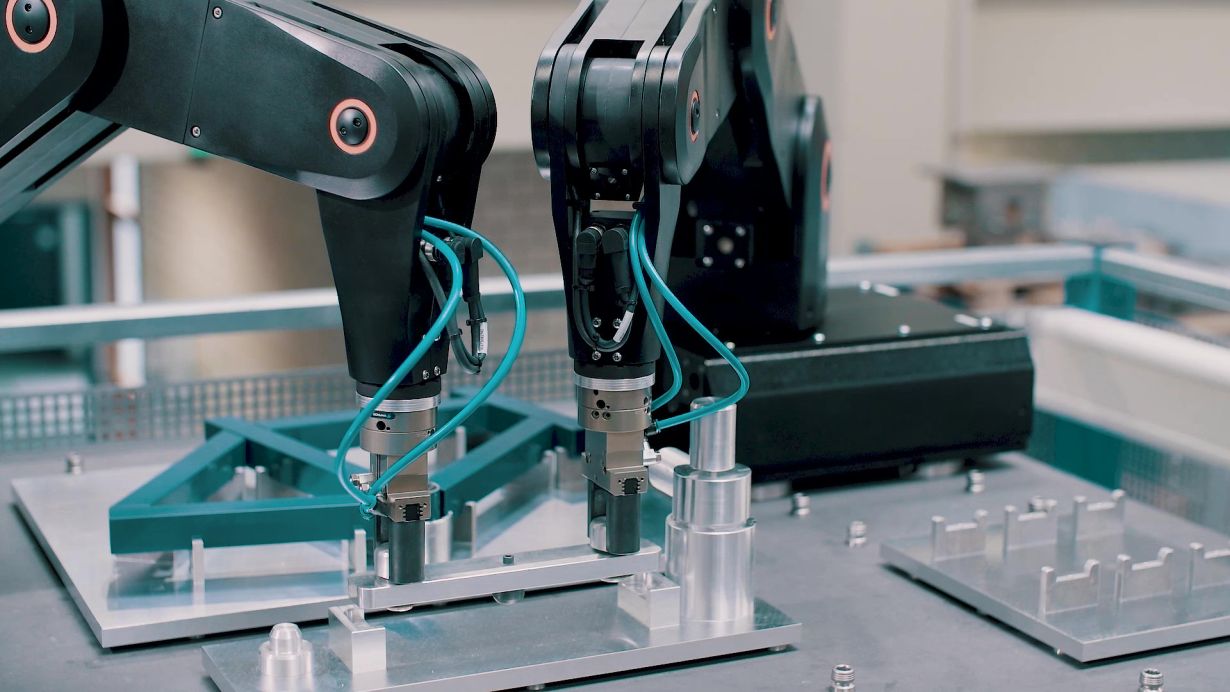 KIT engineers and industrial partners work on the economic production of individualised industrial and consumer goods
KIT engineers and industrial partners work on the economic production of individualised industrial and consumer goods
From sports shoes to car interiors, customers want increasingly individualised products. Manufacturing industrial and consumer goods with a high degree of individualisation and quality requirements in correspondingly smaller quantities economically and competitively requires suitable production processes. Researchers at the Karlsruhe Institute of Technology (KIT) are working with industrial partners to develop a new type of production planning system that combines the high productivity and precision of special machines with the flexibility and adaptability of industrial robots and is very easy to operate.
Companies responding to the increasing demand for greater variety in their products have a competitive advantage, but their prices often have to compete with those of rival products from highly efficient, automated and rigid production. They are then faced with a choice between rigid production lines with high productivity or flexible manufacturing with low efficiency. Breaking up this conflict of goals and combining high flexibility with high productivity is the goal of the Value Stream Kinematics research project. This involves a completely new approach to production. "Suitable production systems that are characterised by high flexibility and a high degree of automation in equal measure have not existed until now, or only in rudimentary form. Our approach closes this gap," says Edgar Mühlbeier from the wbk Institute for Production Technology at KIT. There, the mechanical engineer with a focus on control technology is coordinating the development of this innovative production system. It combines the high productivity and precision of special machines with the flexibility of industrial robots.
"Value stream kinematics could revolutionise today's production landscape," says Professor Jürgen Fleischer, head of the wbk and initiator of the novel production approach. It could make large halls superfluous and prevent long supply chains or production stoppages due to supply bottlenecks. The current crisis caused by the pandemic has shown how quickly the assembly lines can come to a standstill if supplies for production from abroad are not available in time. "If our flexible systems were in use, regional companies in the immediate vicinity could step in and produce the missing parts. The reduction of transport routes would also be environmentally friendly and resource-saving," Fleischer emphasises.
www.kit.edu


















































































